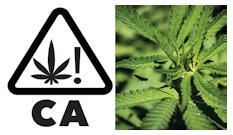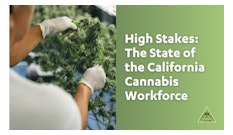OAKLAND, CA (October 19, 2020) – PRESS RELEASE – Hemp and cannabis infusion technology company Vertosa has announced it has teamed with Pabst Labs, the newly formed licensed cannabis company producing ready-to-drink beverages under the iconic Pabst Blue Ribbon name, to develop and launch Pabst Blue Ribbon Cannabis Infused Seltzer. The new non-alcoholic THC beverage infused by Vertosa is now available in a select group of California dispensaries and direct to California consumers via shop.PabstLabs.com.
“We at Vertosa are absolutely thrilled to partner with the historic, legacy American beverage company that is Pabst Blue Ribbon on their Pabst Labs products as they embark on their journey into the cannabis industry,” said Vertosa Chief Innovation Officer Austin Stevenson. “But this is more than a major milestone for our two-year-old company; the launch of Pabst Blue Ribbon Cannabis Infused Seltzer takes the entire cannabis infused beverage market to a whole new level of household name status and accessibility, paving the way for more innovative infused beverages to reach wider audiences.”
RELATED: Pabst Blue Ribbon Cannabis Infused Seltzer Debuts in California
Since its inception in 2018, the Oakland, Calif.-based company, which recently announced its expansion into Canada, has quickly become the go-to cannabis and hemp infusion partner for an ever-expanding roster of both mainstream and niche beverage brands from North America to the UK, including VitaCoco, Calexo, Lagunitas Hi-Fi Hops, Viv & Oak wine, and Soul Grind cold brew by Caliva. They currently infuse more than 100 hemp and cannabis products on the market, including two of the top three ready-to-drink brands in California. Vertosa’s team of scientists, led by CSO/Founder Dr. Harold Han, has designed emulsion systems for cannabinoids that are not only water-compatible, but taste great, are highly bioavailable and have a quick onset of less than 10 minutes.
Vertosa’s approach is never one-size-fits all. To infuse the Pabst Blue Ribbon Cannabis Seltzer, they worked diligently and closely with Pabst Labs for months to custom design an infusion solution to fit the PBR intended experience, including flavor, clarity, mouthfeel, stability and compatibility.
Each can of Pabst Blue Ribbon Cannabis Infused Seltzer features 5 mg THC, a responsible dosage designed to make it a go-to drink for both casual and experienced cannabis users. In addition, PBR Cannabis Infused Seltzer is alcohol-free, preservative-free and contains just 4 grams of sugar and 25 calories per can. Lemon Seltzer is the current flavor available, but additional flavors are already in development.
“Though this is a limited initial launch, we’ve had a really enthusiastic and positive response from dispensaries and customers, and are looking forward to a wider roll out in the coming months. For over 175 years the Blue Ribbon has connected fans across generations around its products, and we think customers, new and old, are going to love the chance to experiment with something different from a brand they trust,” said Pabst Labs Brand Manager Mark Faicol.
























